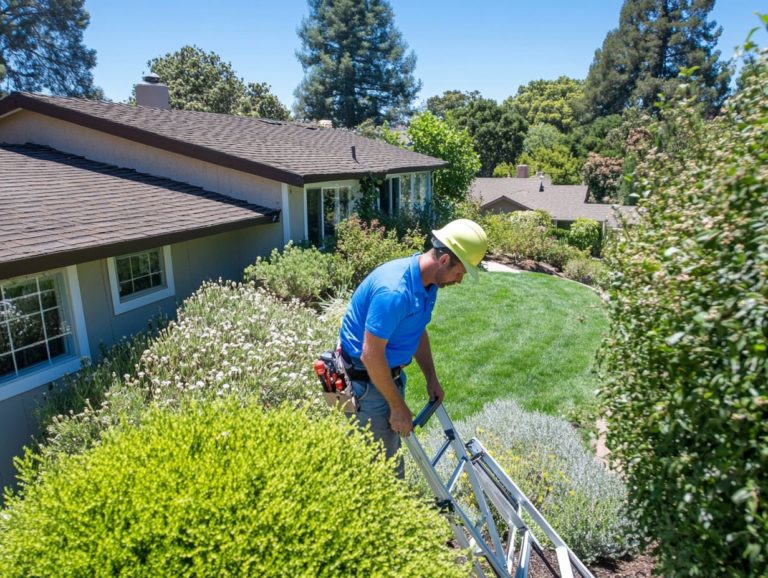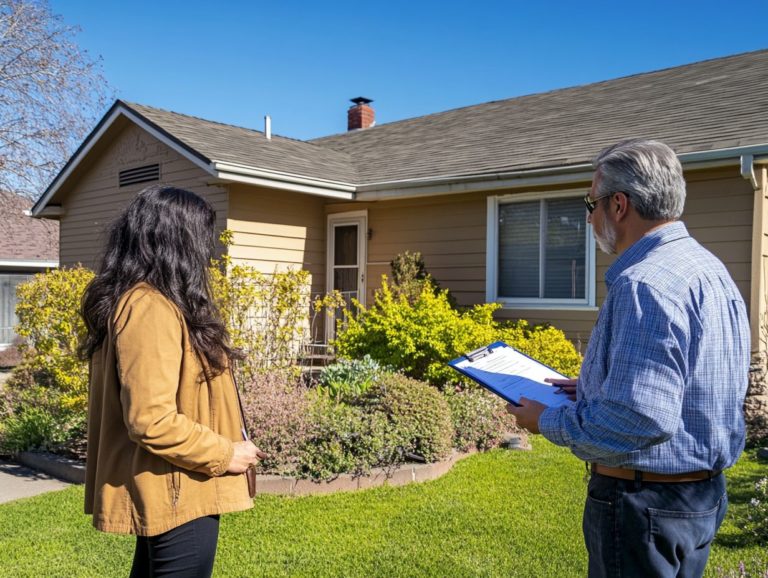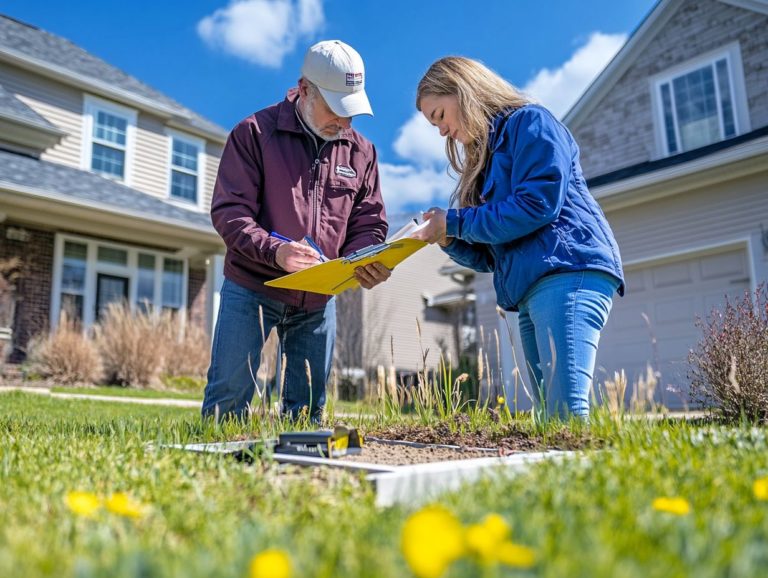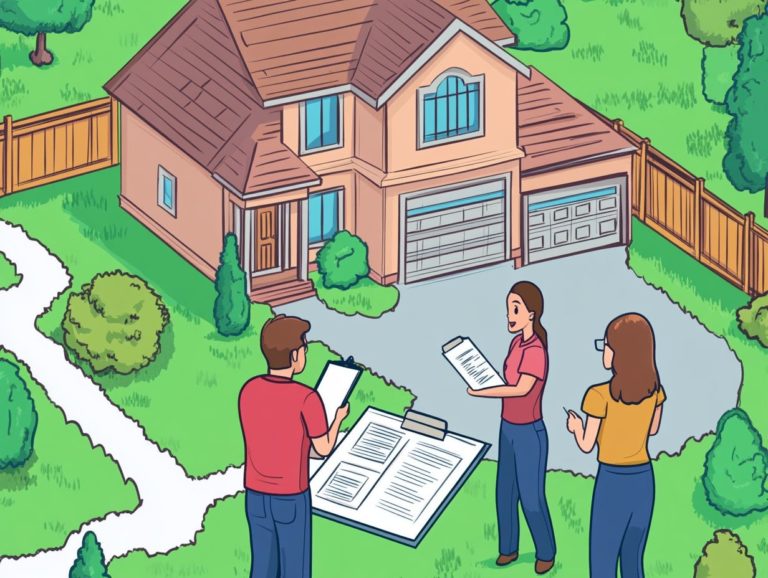The Importance of Honesty in Home Inspections
When you’re buying or selling a home, grasping its condition is vital. That s precisely where home inspections become invaluable.
This article delves into the definition and purpose of a home inspection, highlighting the critical role honesty plays in achieving accurate assessments. You’ll discover why being honest is a game-changer!
Join in as we reveal why honesty isn’t just important it’s absolutely essential.
Contents
- Key Takeaways:
- What is a Home Inspection?
- The Role of Honesty in Home Inspections
- Consequences of Dishonesty in Home Inspections
- How to Ensure Honesty in Home Inspections
- The Impact of Honesty on Home Buyers and Sellers
- Frequently Asked Questions
- What is the importance of honesty in home inspections?
- How does honesty benefit both the home inspector and the client?
- Can honesty affect the selling price of a home?
- How can a lack of honesty in home inspections be detected?
- What are the consequences of being dishonest in a home inspection?
- What can homeowners do to ensure honesty in a home inspection?
Key Takeaways:
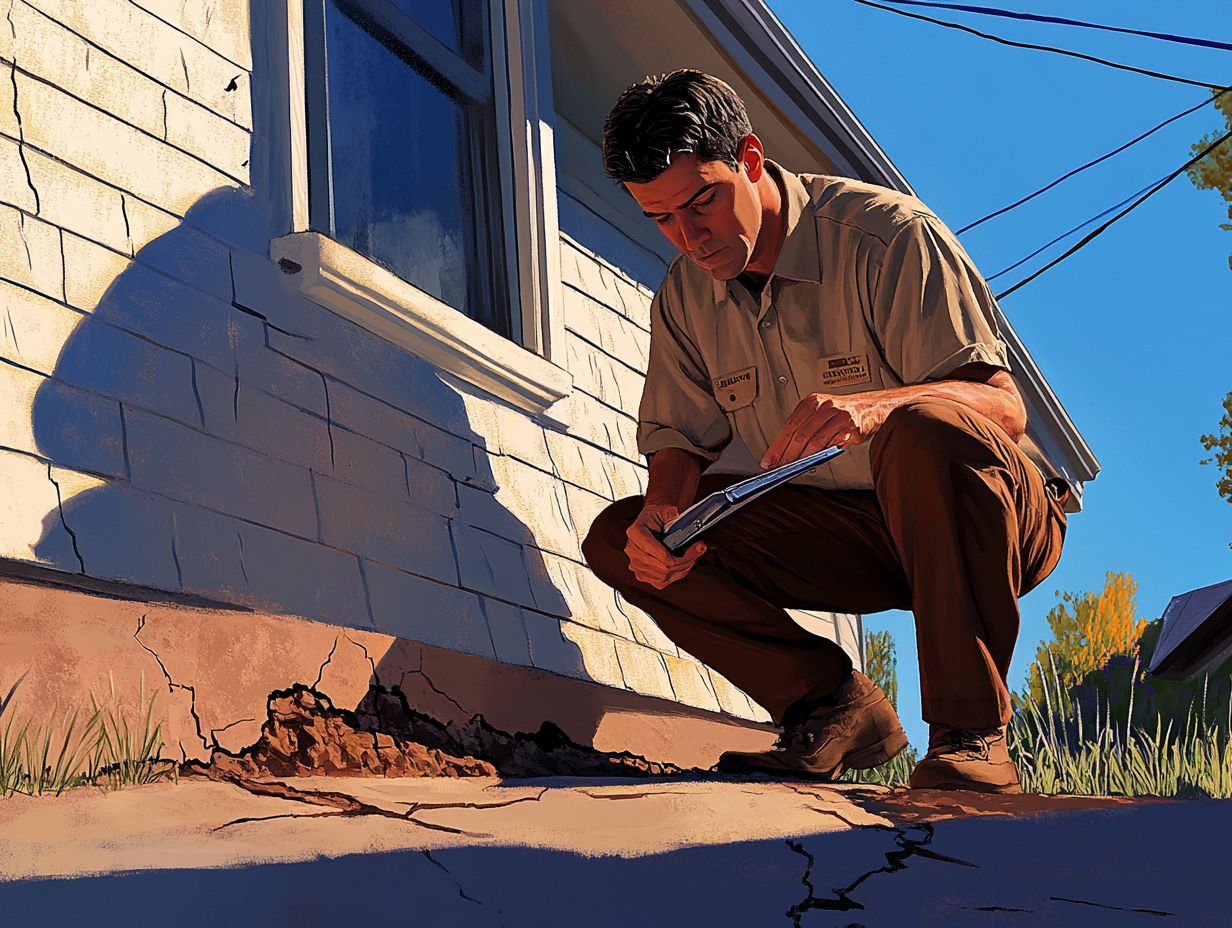
Honesty is essential for accurate and fair home inspections. It helps identify potential issues and ensures transparency for both buyers and sellers.
Dishonesty in home inspections can lead to legal and ethical consequences. It can also harm the trust and reputation of both the inspector and the real estate industry.
To ensure honesty in home inspections, inspectors should follow best practices such as thorough training, unbiased reporting, and open communication with clients.
What is a Home Inspection?
A home inspection is a careful evaluation of a property s condition, typically carried out by a licensed inspector. This process uncovers potential problems and safety hazards that could affect the safety and strength of your home.
During the inspection, the inspector examines critical systems, including plumbing, electrical setups, and heating, ventilation, and air conditioning (HVAC).
You ll receive a detailed inspection report that outlines maintenance recommendations and highlights any significant defects or hidden issues that could impact your home’s value and your peace of mind.
Definition and Purpose
A home inspection is a careful examination of a property’s condition. It’s designed to provide you with crucial insights into its overall safety and strength.
This thorough assessment acts as a vital safeguard, enabling you to make informed decisions that could significantly impact your financial future.
During the inspection process, various elements are evaluated, including plumbing, electrical systems, and the roof. This ensures that any potential red flags are spotted before you make a purchase.
You have access to different types of inspections, such as safety inspections. These specifically target hazards like faulty wiring or structural issues that could endanger occupants.
By understanding these nuances, you can negotiate repairs or price adjustments more effectively, ultimately fostering long-term peace of mind regarding your home investment.
The Role of Honesty in Home Inspections
Honesty serves as the cornerstone of the home inspection process. It ensures that the findings reported by the licensed inspector are reliable and accurately reflect the property’s condition.
This transparency builds trust between buyers and sellers, creating a foundation for a seamless transaction.
Why Honesty is Essential for Accurate Inspections
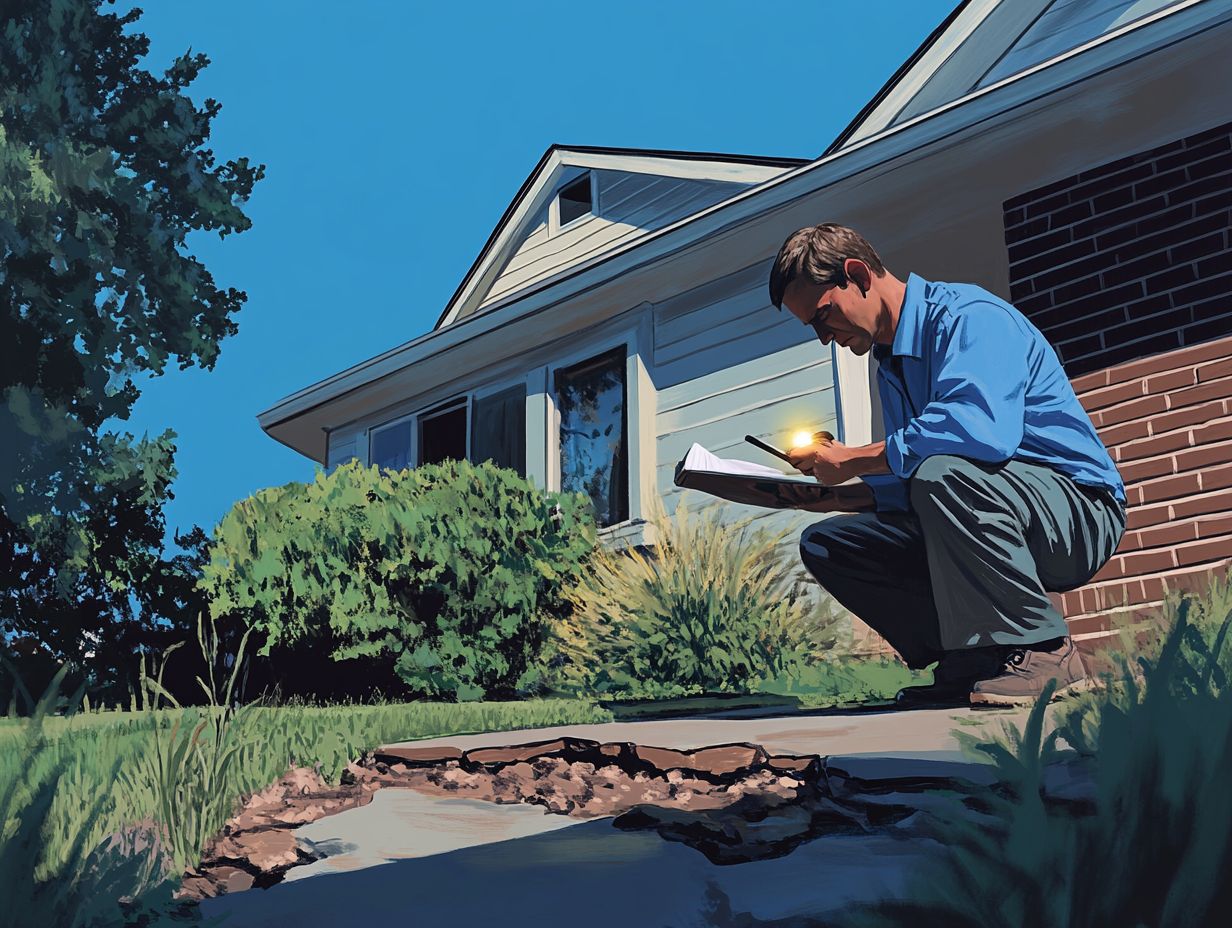
Honesty in home inspections is essential to ensure that the findings truly reflect any safety hazards or structural issues present in the property. Understanding the importance of home inspections significantly influences repair negotiations.
When you receive a clear and honest assessment, you gain valuable insight into potential repairs and their associated costs. This allows you to negotiate with confidence.
Accurate inspections are crucial for identifying immediate concerns and uncovering long-term maintenance issues that could surface after your purchase. Dishonest reporting can hide these problems, leading to unwelcome surprises and possible liabilities in the future.
Thus, cultivating a culture of integrity in inspections not only safeguards your investment but also enhances the credibility of the entire real estate market.
Consequences of Dishonesty in Home Inspections
Dishonesty in home inspections can have serious repercussions, including potential legal ramifications for inspectors and a loss of trust during negotiations with buyers.
This erosion of trust can ultimately jeopardize the safety and longevity of your investment in the property.
Don t wait ensure your home inspection is honest and thorough for your peace of mind!
Legal and Ethical Implications
Dishonesty in home inspections has serious legal and ethical implications. It can lead to liability issues and damage your reputation and career.
Such negligence jeopardizes the safety and financial well-being of your clients. It also undermines the credibility of the entire home inspection profession.
You carry a significant ethical burden to accurately assess conditions and disclose your findings. Any lapses in integrity could expose you to legal actions, including malpractice lawsuits or loss of licensure.
Upholding high standards fosters trust between you and your clients, which is essential for helping them make informed decisions about property transactions. Therefore, maintaining honesty and transparency is not merely a legal requirement; it is a moral imperative that shapes the future of the industry.
How to Ensure Honesty in Home Inspections
Ensuring honesty in home inspections requires following best practices and adhering to established inspection standards. These guidelines serve as a strong foundation, enabling licensed home inspectors to conduct comprehensive evaluations.
By doing so, you can cultivate trust and confidence in the home buying process.
Best Practices for Inspectors
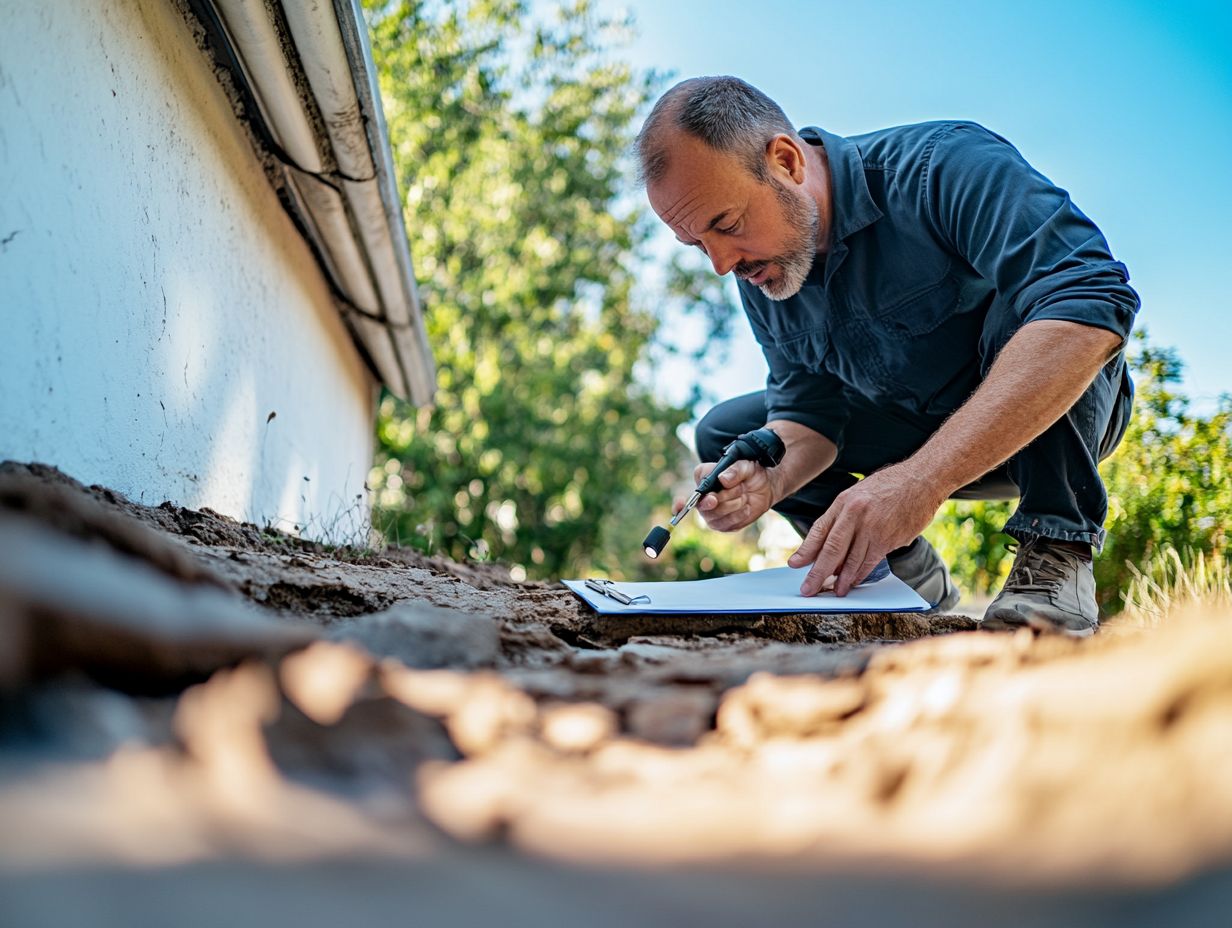
Best practices for home inspectors include using an inspection checklist and maintaining open communication with clients. Adhering to ethical standards ensures transparency and reliability.
By employing a detailed inspection checklist, you can systematically evaluate every aspect of a property. This approach ensures that no crucial elements are overlooked.
Cultivating a trustworthy relationship with your clients is vital. Provide regular updates throughout the inspection, explain findings in clear language, and address any concerns promptly.
Ethical behavior is essential. This means steering clear of conflicts of interest, delivering unbiased opinions, and respecting client confidentiality.
By integrating these strategies, you enhance the integrity of the inspection process and foster long-term trust in your expertise.
The Impact of Honesty on Home Buyers and Sellers
The impact of honesty in home inspections resonates deeply with both home buyers and sellers. Understanding the importance of a thorough home inspection fosters transparency and builds trust throughout the property assessment process.
This ultimately benefits everyone involved, especially during buyer negotiations.
Benefits of Honest Inspections for All Parties Involved
Honest inspections offer a wealth of benefits for home buyers and sellers. These benefits include enhanced negotiation leverage, transparency regarding the property’s condition, and increased confidence throughout the transaction.
For buyers, understanding the true state of a property enables informed decisions. This knowledge can save money on repairs and provide valuable insights during price discussions.
Sellers also reap rewards from thorough assessments. By addressing issues upfront, you can avoid last-minute surprises that derail deals or diminish offers.
This straightforward approach cultivates trust between both parties, making for smoother negotiations based on a shared understanding of the property’s value.
In the end, both parties walk away with a clear understanding of the property’s worth, leading to a more satisfactory and equitable exchange.
Frequently Asked Questions
What is the importance of honesty in home inspections?
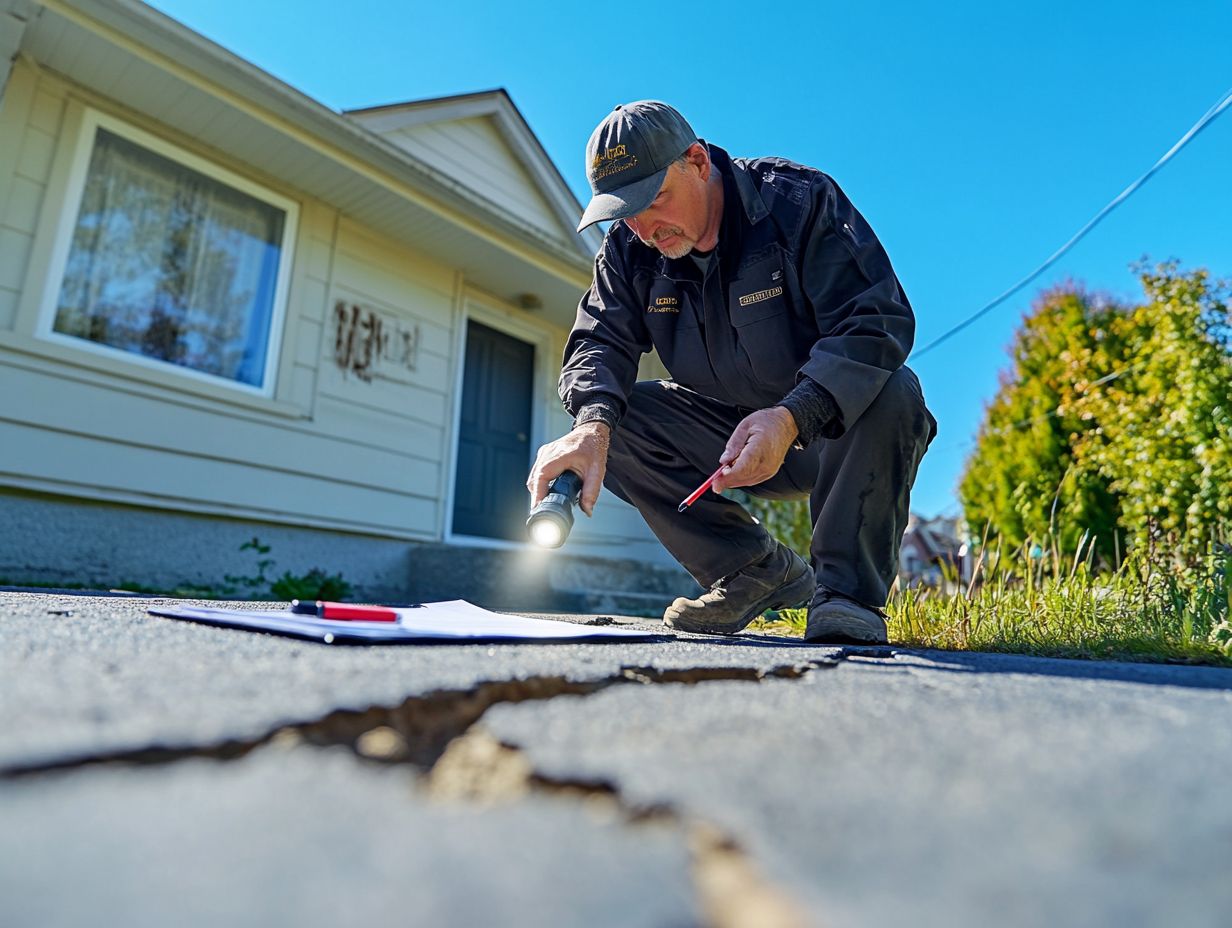
Honesty is crucial in home inspections as it ensures the accuracy and reliability of the inspection report. Understanding the importance of thorough home inspections can prevent potential issues or hazards in the home from going undetected, putting the safety of the buyers at risk.
How does honesty benefit both the home inspector and the client?
Honesty establishes trust between the home inspector and the client. This trust allows for open communication and makes it easier to discuss any potential issues found during the inspection.
Honesty also helps avoid legal issues that can arise from providing false information.
Can honesty affect the selling price of a home?
Yes, honesty can impact the selling price of a home. If potential issues arise during an inspection and are not disclosed, the buyer may request a lower price or even cancel the purchase.
How can a lack of honesty in home inspections be detected?
You can spot dishonesty by looking for differences in the inspection report. If the inspector avoids questions or doesn t clarify their findings, that s a red flag.
What are the consequences of being dishonest in a home inspection?
Dishonesty in a home inspection can lead to serious problems. It may result in legal action from the client, harm the inspector’s reputation, and risk their license.
What can homeowners do to ensure honesty in a home inspection?
Homeowners should research and select a reputable, licensed home inspector. They should also be present during the inspection and ask questions to ensure everything is transparent.

